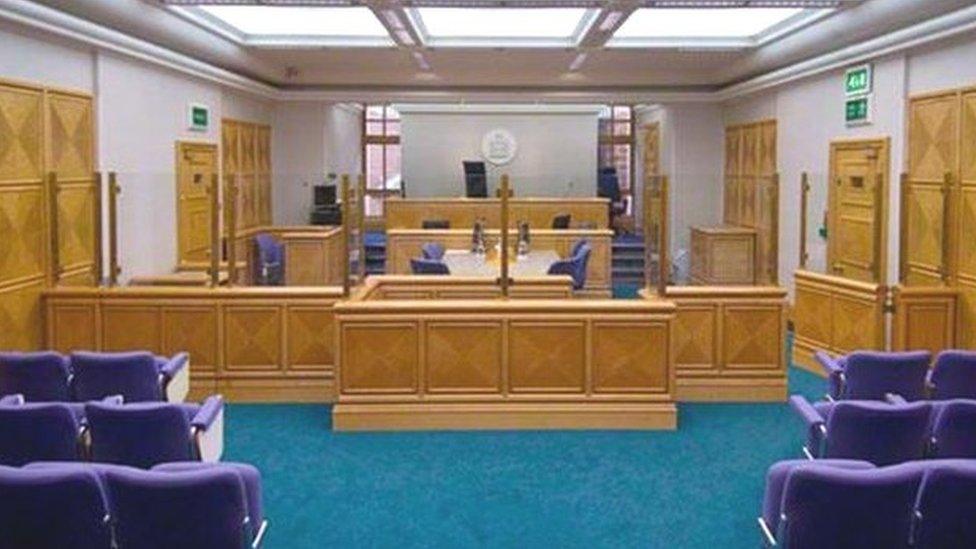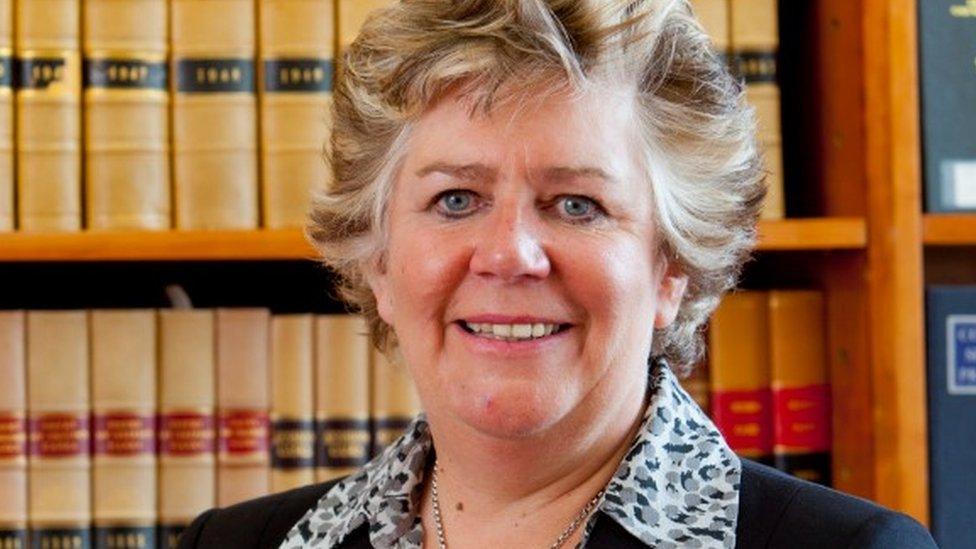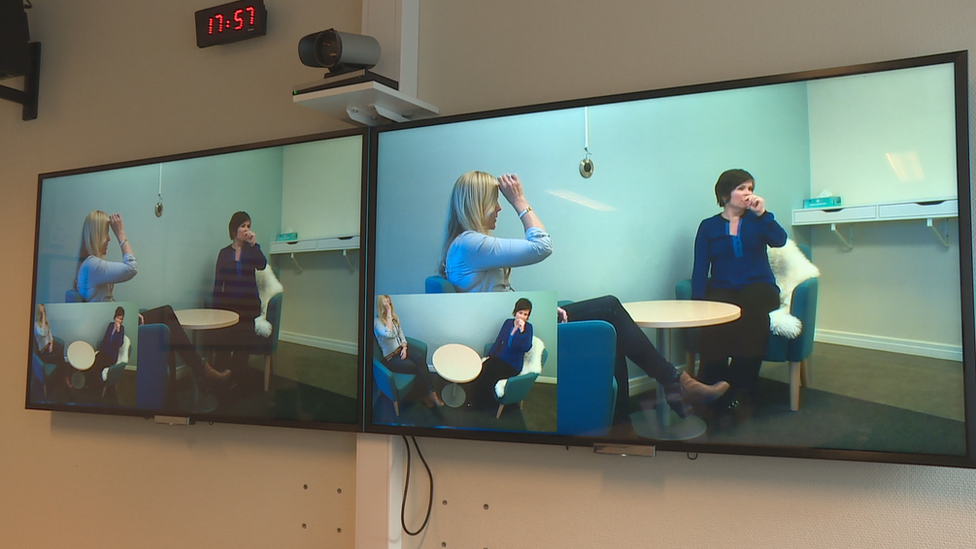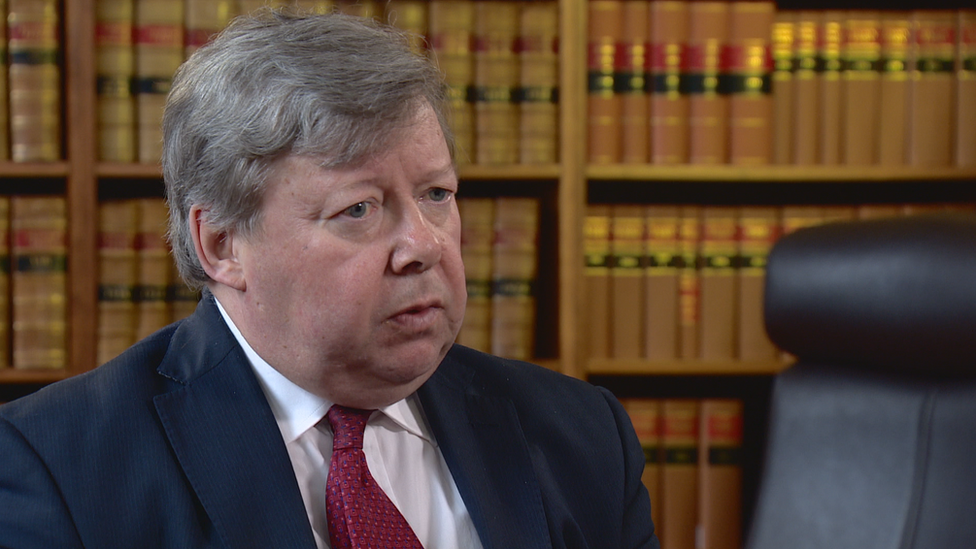Specialist sex crime courts in Scotland could be jury free
- Published

The review suggests a number of ways the judicial system could be improved
Specialist courts in Scotland should be set up to deal with the most serious sex crimes, a review has recommended.
One suggestion is for cases to be heard by a single judge with no jury.
The review, led by Lord Justice Clerk Lady Dorrian, is part of a shake-up of how Scottish courts deal with rape and other sexual offences cases.
Other proposals include the presumed use of pre-recorded evidence and sentencing powers of up to 10 years imprisonment.
Rape Crisis Scotland, Scottish Women's Aid, Victim Support Scotland and the Crown Office were all involved with the review.
Among the panel's other ideas are for juries to be given "plain language directions" with a pilot programme looking at how jurors can be told about rape myths and stereotypes.
The right for the complainer not to be identified should also be expressly set out in legislation rather than relying on the current convention, the group recommended.
Lady Dorrian told BBC Scotland she hoped the proposals would improve the way cases are handled for complainers, the accused and witnesses.
She said: "We decided that we really needed to start from the ground up. If we started afresh what would the court to deal with these cases look like?
"We have made recommendations which we believe will fundamentally change and improve the way sexual offences are prosecuted in Scotland."
Trauma-informed training
Lady Dorrian said increasing conviction rates in sex crime cases "was not a driving force" behind the group's recommendations.
At the proposed specialist court, cases would be presided over by a combination of High Court judges and sheriffs who had received trauma-informed training in the presentation of evidence of vulnerable witnesses.
Similar training for prosecutors and defence agents would include accredited courses in dealing with vulnerable witnesses and the use of examination techniques.

Lord Justice Clerk Lady Dorrian said changes were needed because of the growth in volume and complexity of sexual offending cases
The dedicated court would have sentencing powers of up to 10 years' imprisonment with a provision for remit to the High Court for longer sentences if required.
The group also put forward proposals for evidence from complainers in serious sexual offence cases to be recorded by specially trained police officers as early as possible after an alleged incident.
'Significant action is needed'
Sandy Brindley, chief executive of Rape Crisis Scotland, said: "All too often survivors tell us that the process of seeking justice - and in particular their experience in court - is as least as traumatic as the attack itself.
"It is clear that significant action is needed.
"The recommendations are bold, evidence based, and have the potential to transform Scotland's response to sexual crime."
Crown Agent David Harvie said: "The introduction of a specialist sexual offences court would be an important step towards meaningful improvement in the delivery of justice in Scotland, for complainers, for accused, for society as a whole and is one that I fully support."
However, Solicitor Advocate John Scott QC warned against a move away from jury trials in a bid to allay fears over rape myths and stereotypes.
He told the BBC's Good Morning Scotland programme: "We can and should improve the process.
"But if we change our system with a specific aim of increasing the conviction rate, then I think we skew it in a way that is very unsafe and worrying.
"We don't have an evidence base that justifies abandoning juries, which allows the unconscious bias we all have to be evened out between 15 people."
The recommendations will now be considered by the Lord Justice General, Lord Carloway and the next Scottish government formed after May's election.
Related topics
- Published24 January 2019

- Published1 May 2018

- Published31 March 2020
